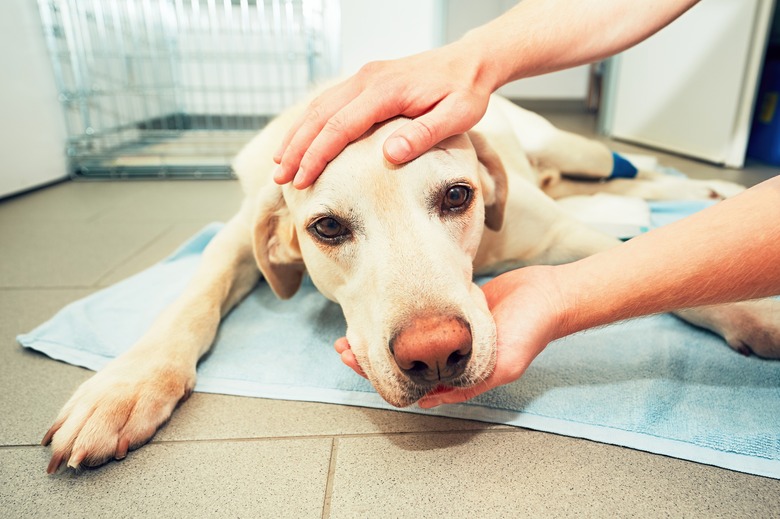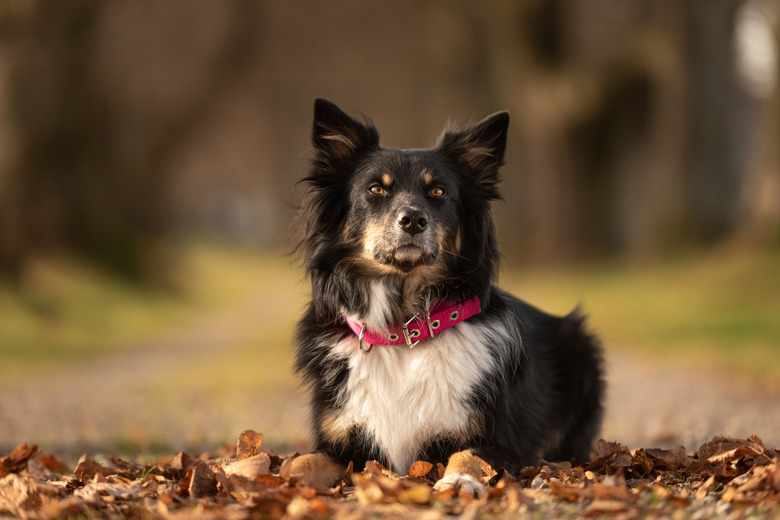Foul-Smelling Tumors In Dogs
Finding a lump on a dog is one of the most common concerns that pet owners bring up with their veterinarian and rightly so. Discovering a new lump, bump, or skin growth on your dog can be scary, especially because cancer may immediately come to mind. Any new lump or growth on your dog's skin warrants a visit to your veterinarian. The veterinarian can determine if a lump is a benign (noncancerous) skin growth or something more concerning.
Types of tumors found on dogs
Lipoma in dogs
Lipomas are the most common noncancerous soft tissue growth in dogs. These fatty tumors, prevalent in older canines, can appear anywhere on your dog. They often feel squishy and are easy to move around. They are typically benign and frequently do not require treatment unless they are affecting your dog's mobility.
Melanoma in dogs
A melanoma is a dark-colored tumor that often starts out as a black patch of skin and becomes larger or lumpier over time. Melanomas can be malignant (cancerous) or benign. They often occur on a dog's nose or in their mouth.
Oral tumors in dogs
Besides melanoma, there are many other types of oral tumors, both benign and malignant, that can affect a dog's mouth. Because of their location, they are often detected late. Some common signs that your dog might have an oral tumor include bleeding from the mouth, swallowing food whole instead of chewing, drooling a lot, and bad breath. They might also have a decreased appetite, or they might be interested in food but reluctant to actually eat.
A foul odor could indicate an oral tumor that has become infected. These can also be clinical signs of periodontal disease, tooth decay, or tooth root abscess, which are far more common problems in dogs. A yearly dental exam and cleaning can help stave off periodontal disease and help detect tumors early.
Skin tags and warts in dogs
Skin tags are benign fleshy growths that protrude from the surface of the skin. They are common in older dogs. Warts are small, bumpy, cauliflowerlike growths that are usually hard. They can appear anywhere on your dog, including their mouth and eyelids. Warts are often caused by a virus called papillomavirus.
Cancerous growths in dogs
Mast cell tumors, soft tissue sarcomas, mammary gland tumors, and squamous cell carcinomas are among the many types of cancer that can occur in dogs. Make a veterinarian appointment if you notice any skin changes on your dog. They can determine the type of tumor by performing tests such as fine needle aspirates or biopsies and will discuss treatment options if malignant tumors or other canine cancer is detected.
Foul-smelling tumors on dogs
Foul-smelling tumors on dogs
If you find a growth on your dog that is oozing or has a foul odor, it might be cancer, but it also might not be a tumor at all. It can be an infected sebaceous cyst or an abscess. Sebaceous cysts are hollow areas within the tissue of the skin that can fill with sebum, a waxy substance. They usually look like lumpy pimples and form around hair follicles.
Your dog could also have an abscess, a pocket of pus that develops under the skin and causes painful pressure and swelling. Abscesses often develop after deep puncture wounds, such as bite wounds, introduce bacteria. The open wound starts to heal, and it seals over, leaving a bacterial infection to fester beneath.
Both sebaceous cysts and abscesses should be assessed (and treated if needed) by your veterinarian.
Detecting cancer in dogs
Detecting cancer in dogs
It's not possible to tell how serious a lump is just by looking at it. Any lump or bump on a dog should be checked out by a veterinarian. But don't wait until you're worried. Even a healthy dog should have an annual wellness exam. Older dogs should see their veterinarian every six months. Regular exams can maintain your pet's well-being and help detect health issues early. Your veterinarian can catch subtle clinical signs of cancer or other health problems. They can monitor and treat any lumps, bumps, or other skin changes before they progress.
The bottom line
The bottom line
Skin growths are a frequent finding in dogs and a common concern for their owners. They can range from foul-smelling lesions, such as abscesses, to cancerous tumors, like malignant melanomas. Benign fatty tumors, or lipomas, are also prevalent in dogs. Rely on your veterinarian to determine the type of growth or tumor as well as whether to monitor it, treat it, or both.


